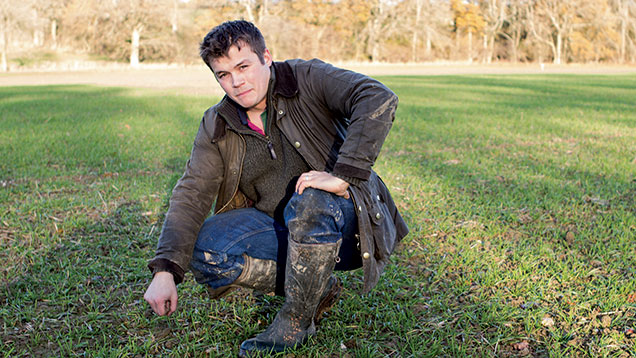Farmer Focus: Frustrated by lack of spring drilling progress

Hopefully, by the time you read this I’ll be so busy I can’t work out whether to sit on the sprayer, fertiliser spinner or drill.
It may just me, but every time we get a drop of rain at the moment the fields glisten with water and seem to go right back to sodden wet in a matter of moments. I’ve looked back to this time last year and having had nearly double the rainfall we’ve had this year, we still got everything drilled and in good time, so I’m not panicking yet.
Read more from our arable Farmer Focus writers
I’ve had a lot of time for one thing and that’s planning. So, the theory is when conditions allow I’ll be well ahead of the game. I’ve ordered the bulk of my chemicals up to T2 application in wheat, most of my bean fungicide and all of my fertiliser was ordered last July.
This has left me chomping at the bit to get started. I was once told by an old landowner: “Patience is key with spring decisions.” I have tried to force it early before, but he was right.
With the current market prospects and oversupply of wheat in particular, we’re going to be drilling naked oats this spring. At more than double the price of conventional oats and with low inputs, they are well worth the itchiness associated with handling them.
Going back to the oversupply of wheat, it seems ludicrous to me that we are being told we will need to feed nine billion people andneed to start yielding 20t/ha by 2020 (that’s only five years away), yet last year our average yield as a company was 8.3t/ha and we can barely give our wheat away at the moment. We are only just being paid what it costs to grow.
Two weeks ago, Farmers Weekly published a report on “How to meet the growing demand for wheat”. I have no doubt we do need to increase our wheat yield to feed the masses (they just need to be able to buy it), but the article says we are 25% – or 2.2t/ha – away from potential yield, just using current technology.
So what happens when we’ve invested to get that extra 2.2t/ha and we’re still struggling to give away the wheat? Let’s hope that a global weather event comes to increase prices and we can work out how to feed the starving around the world and sell the surplus.
Robert manages 600ha of combinable cropping across Sentry’s operations in Sussex and Surrey. Cropping includes winter wheat, oats, oilseed rape, linseed, peas and soon beans.

